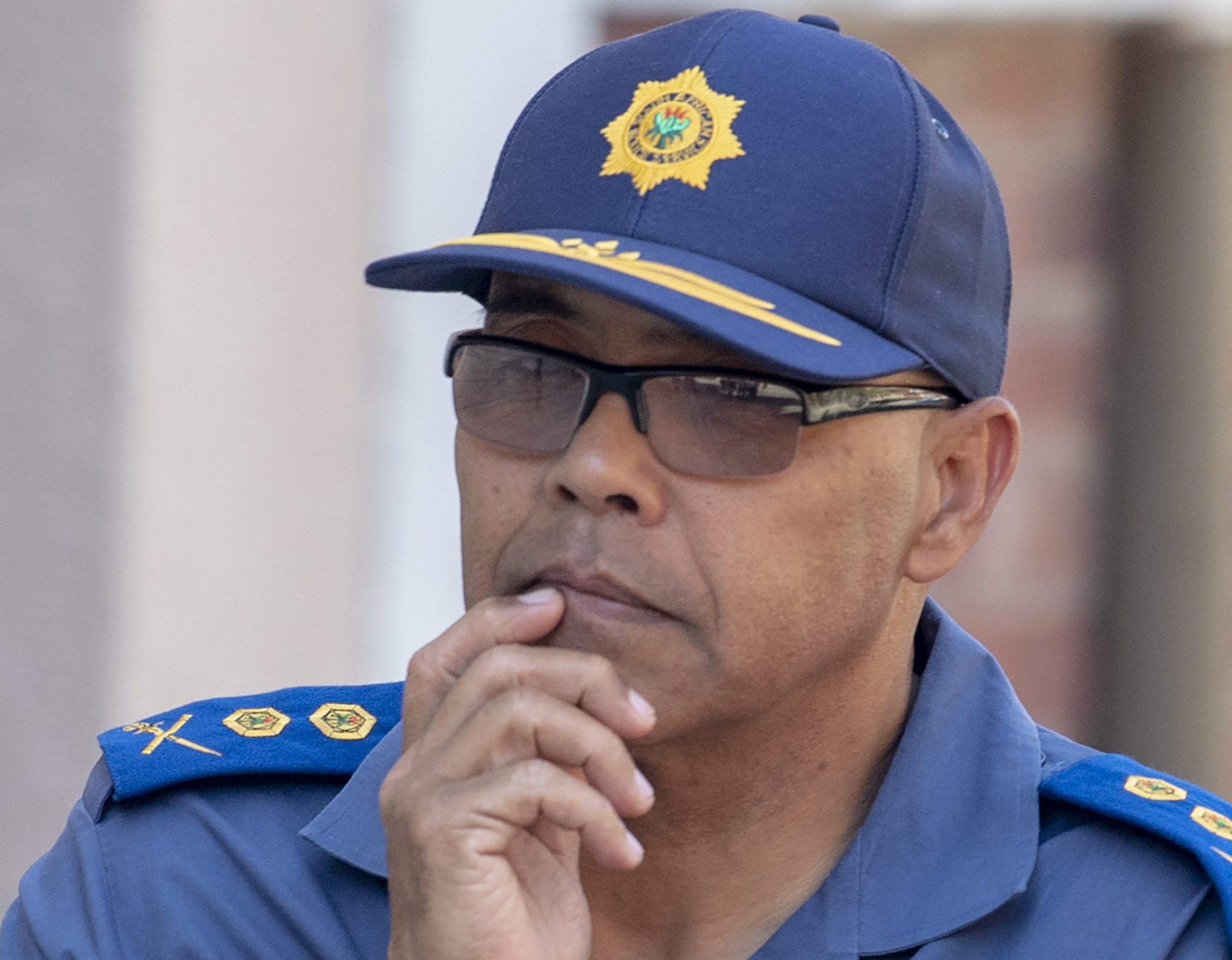/file/dailymaverick/wp-content/uploads/2025/06/ED_560950.jpg)
Former ANC intelligence operative and retired policeman André Lincoln experienced extreme health problems, but in addition to those, he died of a broken heart. Allan Boesak, a reverend and activist, said this during Lincoln’s funeral on Saturday, 14 June 2025, at the St James Church in the Cape Town
suburb of Kenilworth.
“André died of a broken heart… Because he died in a country he did not fight for. He did not fight for this…
He did not fight for the imposition of a new kind of apartheid. He did not fight for the permanentisation of the impoverishment of our people,” Boesak said.
“He did not fight for the reinstallation and re-entrenchment of racialism. He did not fight for the corruption that faces us, that drags us down”.
While Boesak spoke during an initial family-focused part of the funeral, the second part of the send-off was a category two Special Provincial Official Funeral, in other words, a state funeral.
‘Distinguished person’
/file/dailymaverick/wp-content/uploads/2025/06/ED_560941.jpg)
A Presidency document said that this type of funeral was for “distinguished persons specifically designated by the President of South Africa on request by the Premier of a province.” National police commissioner Fannnie Masemola would have been present at Lincoln’s funeral on Saturday but had to attend to an
emergency in the Eastern Cape.
Aside from Lincoln’s family and friends, among those in attendance were dozens of past and present South African Police Service (SAPS) officers, including the Western Cape and KwaZulu-Natal police commissioners. There were also politicians and bikers – Lincoln was an ardent motor
bike rider. He died on 30 May at the age of 63. Lincoln had been an ANC intelligence operative with Umkhonto weSizwe (MK) under apartheid and fought that regime. He became a policeman when the country progressed into a democracy around 1994.
[embed]https://www.youtube.com/watch?v=K0KUeAWtuVY&t=2s[/embed]
Handpicked by Madiba
Democratic South Africa’s first president Nelson Mandela handpicked Lincoln to head an investigative unit that effectively imploded in the 1990s because Lincoln was charged and convicted of crimes, which he
said were maliciously concocted against him.
Lincoln always insisted he was targeted because some individuals in the state, as well as some fellow cops, wanted to prevent his investigations from continuing. He was kicked out of the police service, but he legally fought his convictions, was acquitted and later reabsorbed into the SAPS.
‘He died of a broken heart’
Speaking at Lincoln’s funeral on Saturday, Boesak asked if somebody could die of a broken heart. He then explained that his grandfather did after the apartheid government took away his land – “his life.” Boesak therefore understood that someone could indeed die of a broken heart. He said that while it was known Lincoln had been ill – he had diabetes, had a double leg amputation and a heart transplant – he had also been stressed and “did not simply die of his illness, he died of a broken heart.”
While Boesak did not elaborate on what was stressing Lincoln, there were some likely issues. Lincoln was previously the head of the Anti-Gang Unit in South Africa’s gangsterism capital the Western Cape. He was among police officers accused of not doing enough to prevent the murder of policeman Charl Kinnear in 2020 and was implicated in an Independent Police Investigative Directorate Report which could have
resulted in him being charged with culpable homicide.
Lincoln previously countered, in related court papers, that: “I believe that I am being persecuted by the SAPS because I have made disclosures about the inaction of my seniors.”
‘No permanent dreams’
/file/dailymaverick/wp-content/uploads/2025/06/ED_560954.jpg)
During Saturday’s funeral, Boesak focused on Lincoln’s background. Boesak did not know what it was like to be “an underground MK soldier,” but based on conversations with individuals like Lincoln, he could imagine it. “Always on the run. Hounded down. Hounded by powers much stronger than yourself. No such place as a safe place ever,” Boesak said. “No time for a normal life, no permanent relationships, no permanent dreams, [and] no permanent hopes because every day could be your last
day. “Danger from without and betrayal from within. There is the constant battle between your idealism, what you want to achieve, and the cynicism at how little you can achieve sometimes.”
Read more: André Lincoln — from Mandela’s protector to anti-gang
pioneer, leaving a legacy of resilience
Boesak said this arena was accompanied by constant questions, especially one: “Why am I doing this?”The answer, he said, was because of the belief in the struggle for freedom, dignity and for the future of children.
Boesak said that Lincoln had to live with constant contradictions, highs and lows. Without going into much detail, he then seemed to reference Mandela’s appointment of Lincoln to head the investigative unit that imploded because of criminal accusations against him in the 1990s.
‘Shameful and treacherous’
/file/dailymaverick/wp-content/uploads/2025/06/ED_560960.jpg)
“Just as you begin to believe that now has come a time when you can make your contribution out in the open… Just as that moment arrives, it seems as if everything comes crashing down. And not by accident, but by design,” Boesak said.
“Just then the government that you served so loyally and gave it your all, took it all away. And from where I stand, in ways that are so shameful and so treacherous it takes one’s breath away.
“I watched as a system that [Lincoln] tried to build and renew tried to turn him into a criminal because he no longer fit the mould that they wanted him to.”
Read more: ‘You haven’t seen the back of me yet,’ says retired Cape
Town police general André Lincoln at event to honour him
Boesak said Lincoln had always stood for the same truths, values and principles. “But those are the principles that get you into trouble now.”
Boesak added that others needed to pick up what Lincoln had fought for. He also encouraged: “Fight for the dignity that so many tried to take away from him.”
/file/dailymaverick/wp-content/uploads/2025/06/ED_560964.jpg)
A passionate policeman
Western Cape police commissioner Thembisile Patekile spoke on Saturday during the official state part of the funeral. He had worked with Lincoln for a decade before his retirement in 2021. Lincoln helped develop the Western Cape’s Anti-Gang Unit and created the training curriculum that was now being used across the country.
Patekile said Lincoln had undergone various forms of training in the police and was “a good leader with skills.” He further described Lincoln as “an ambassador for the police service” and a decorated officer who loved his job and was passionate about tackling gangsterism. “A few weeks before he died, he sent me a message… advising what needs to be done,” Patekile said. “Little did I know that was his last message I’d attend to.” DM





 Major-General Andre Lincoln who led the Anti-Gang unit (Photo: Gallo Images / Netwerk24 / Jaco Marais)
Major-General Andre Lincoln who led the Anti-Gang unit (Photo: Gallo Images / Netwerk24 / Jaco Marais)